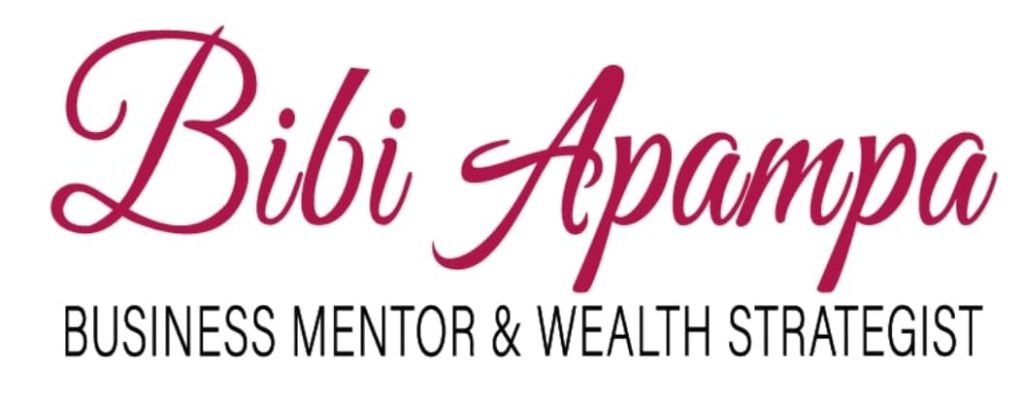Redeeming Your Pastoral Retirement: 21 Purposeful Ways to Serve, Lead, Flourish and Thrive After Ministry

Retirement planning for pastors isn’t just about finances—it’s about rediscovering purpose, community, and spiritual vitality. For many church leaders, pastoral retirement can feel like stepping off a moving train: disorienting, bittersweet, and full of questions. But it doesn’t have to be a dead end. It can be a divine new beginning. Here are 21 meaningful ways to embrace your post-pastorate years with joy, impact, and renewed calling: 1. Rethink the Bucket List Forget the worldly bucket list. Instead, embrace a Kingdom mindset. Your retirement years are a sacred opportunity to build the Church, make disciples, and serve with eternal purpose. 2. Become a Humble Volunteer Find a new church—not the one you retired from—and serve quietly. No need to “fix” things. Just be the most faithful volunteer they’ve ever had. 3. Join a Community Service Group Whether it’s the Lions Club, Rotary, or a local historical society, these groups offer rich opportunities to build relationships and share Christ. 4. Minister in Retirement Homes Lead Bible studies, worship services, or simply visit. These often-overlooked communities are hungry for connection and spiritual care. 5. Support a Younger Pastor Offer your wisdom as an unpaid associate or caregiving pastor. Your experience can be a lifeline to someone navigating the pressures of ministry. 6. Volunteer with a Parachurch Ministry Denominational offices and parachurch organizations often need seasoned leaders for coaching, mediation, and support roles. 7. Become a Pastoral Coach Train to coach younger (or older) pastors. Your insights can shape ministries and lives for years to come. 8. Evangelize in Everyday Places Be a “retail missionary.” Strike up conversations at the hardware store, coffee shop, or gym. Model what it means to live out faith in the marketplace. 9. Dive into Local Outreach Now that you’re not tied to weekly sermons, invest in local evangelism and disciple-making efforts you’ve long admired from afar. 10. Revisit Your Tent-Making Skills Return to a former trade or job—not just for income, but as a platform for ministry. You’re wiser now, and your witness will be stronger. 11. Write That Book You’ve got stories, wisdom, and lessons worth sharing. Retirement is the perfect time to put pen to paper. 12. Reconnect with Family Reach out to extended family members you’ve lost touch with. Rebuild relationships that may have taken a backseat during your ministry years. 13. Start a Pastor Fellowship Organize regular meetups for local pastors. Create space for prayer, laughter, and mutual encouragement. 14. Use the Gym as a Ministry Hub Join a health club and build relationships with people who may never walk into a church. Your presence can be a quiet witness. 15. Serve as an Interim Pastor Interim ministry is a powerful way to stabilize and renew churches between long-term pastors. Your leadership can be transformative. 16. Offer Pulpit Relief Preach occasionally to give active pastors a break. Sabbaticals and rest are vital—and you can help make them possible. 17. Teach in Schools Whether public or private, schools need mentors and helpers. Your pastoral heart is a gift to students and staff alike. 18. Become a Big Brother or Mentor Be the spiritual father/grandfather someone never had. 19. Drive with Purpose Whether it’s Uber, Lyft, or Meals on Wheels, use your time behind the wheel to share kindness and the gospel. 20. Start A Wisdom Club Start a “Wisdom Club” for retirees meeting once or twice a week where they can come together to share ideas, spend time together and socialize. You can plan and organize a “retirees holiday cruise” or destination holidays especially for those who are alone and need company. 21. Care for Your Spouse If your wife supported you through decades of ministry, now may be your time to serve her with tenderness and devotion. This is ministry, too. Final Thoughts: Retirement Is a New Calling Pastoral retirement isn’t the end of your ministry—it’s a new chapter. With intentional retirement planning for pastors, you can continue to serve, love, and lead in ways that are deeply fulfilling and eternally impactful. “Well done, good and faithful servant.” — May those words echo not just at the end of life, but at the beginning of your retirement journey. Ready to secure your pastoral retirement? Visit RetirementPlanningForPastors.org to learn more about our coaching program and schedule your strategy session. About the Author: Bibi Apampa – The Retirement Queen Bibi Apampa, known as “The Retirement Queen,” is a globally recognized retirement planning expert who has dedicated her career to helping pastors and ministry leaders achieve financial security. With over 20 years of experience in financial planning, Bibi has helped thousands of pastors worldwide build sustainable retirement strategies that honour both their calling, values and their family’s needs. Bibi’s Expertise: Certified Financial Planner with specialized training in building retirement wealth International Speaker at pastoral conferences and denominational events Published Author of multiple resources on pastoral financial planning Ministry Background – Ordained Minister who understands ministry challenges firsthand Why Pastors Trust Bibi: Global Perspective: Having worked with pastors from over 40 countries, Bibi understands the unique challenges ministers face regardless of their location or denomination. Ministry-Focused Approach: Unlike generic financial advisors, Bibi specializes exclusively in helping pastors and understands the unique aspects of ministry life, from housing allowances to irregular income patterns. Proven Track Record: Her clients have collectively saved millions in retirement funds and successfully navigated the transition from active ministry to financially secure retirement. Faith-Based Philosophy: Bibi believes that good stewardship includes planning for retirement, allowing pastors to serve God’s kingdom without financial stress. Connect with Bibi: Website: RetirementPlanningForPastors.org / BibiApampa.info Free Resources: Download Bibi’s “Passive Income Strategies for Pastors” from the website Speaking Engagements: Available for denominational conferences and pastoral gatherings Personal Coaching: Limited spots available for one-on-one retirement planning coaching “My mission is to ensure that no pastor reaches retirement age unprepared. Every minister deserves financial security in their golden years, and I’m here to make that happen.” – Bibi Apampa ————————————————- This article is for educational purposes only and should not
Retirement Planning for Pastors: Understanding Pastoral Retirement from Pastor’s Perspective and The Church’s Perspective

Retirement planning for pastors is unlike retirement planning for other professions. For ministers, stepping down from active pastoral leadership is not just about leaving a job, it is about transitioning from a calling that has shaped their entire identity. From the pastor’s angle, retirement can feel deeply personal and emotional, while from the church’s perspective, it requires careful preparation, financial responsibility, and a graceful shift in leadership. Understanding pastoral retirement from both sides helps ensure that the transition is healthy, respectful, and beneficial for everyone involved. The Pastor’s Perspective: Navigating a New Season of Life 1. Identity and Emotional Adjustment For many pastors, their role is more than a career, it is their life’s calling. Retirement often feels like leaving behind a part of themselves. – A new identity: After years of shepherding, many pastors struggle with redefining themselves as simply members of the congregation.– Feelings of displacement: A retired pastor or their spouse may feel uncertain, asking, “Who am I now if I am no longer the one leading?”– Grief and closure: Pastoral retirement can bring a sense of loss. Healthy closure is necessary to release ties and embrace the next chapter. 2. Financial Stability and Planning One of the greatest challenges in retirement planning for pastors is financial security. Unlike other professionals, many ministers serve in underpaid positions or deliberately decline salary increases, which limits their retirement savings. – Insufficient savings: Smaller churches may not contribute enough toward pensions or retirement funds.– Lack of preparation: Some pastors delay financial planning, leaving them and their families vulnerable later in life.– Housing and healthcare: Retiring pastors who lived in parsonages face housing uncertainty, while healthcare remains one of the largest expenses in pastoral retirement. This highlights the need for pastors to start planning early—building savings, exploring retirement investment options, and considering additional income streams. 3. Continued Ministry and Purpose Retirement does not mean the end of ministry. In fact, many pastors find renewed purpose in new avenues: – Writing books, teaching, or speaking at conferences.– Serving as mentors to younger pastors.– Offering spiritual counseling or leading prayer groups. Still, boundaries are critical. Retired pastors should allow new leadership to thrive without interference, which sometimes means stepping away from their former congregation to join a new church family. The Church’s Perspective: Preparing for Pastoral Retirement 1. Leadership Transition and Succession Planning The retirement of a pastor is a pivotal moment for any church. Without proper planning, it can lead to uncertainty or even division. – Succession planning: Churches must create a clear transition process that outlines timelines and leadership handover.– Empowering new leadership: The congregation should be encouraged to embrace the incoming pastor without comparing them to the retired leader.– Avoiding division: If the retired pastor remains present without boundaries, it may create loyalty conflicts among members. 2. Financial and Emotional Responsibility Scripture reminds us that the church has a duty to care for its ministers, even after active service. – Provide financial support: Denominations with pension systems help, but local churches can also extend honorariums or retirement gifts.– Show ongoing care: Visiting and supporting retired pastors and their spouses helps prevent isolation and honors their lifelong service.– Respect and honor: Titles and recognition can remain as a sign of lasting appreciation for their contributions. 3. Continuing to Benefit from Their Wisdom Retired pastors remain a valuable asset to the church community. – Mentorship: They can guide younger pastors in ministry challenges.– Teaching and prayer: Retired ministers often thrive when given meaningful roles that affirm their wisdom.– Intergenerational exchange: Churches flourish when the energy of new leadership is combined with the experience of seasoned ministers. A Shared Responsibility: Planning Early, Transitioning Well Ultimately, retirement planning for pastors is not the sole responsibility of the pastor or the church—it is a shared journey. Pastors should begin preparing financially and emotionally long before retirement, while churches should actively support smooth transitions and honor their leaders with dignity. Pastoral retirement does not mark the end of ministry. Instead, it is a new chapter filled with opportunities—for rest, renewal, mentoring, and rediscovering life beyond the pulpit. With intentional planning and mutual respect, both pastors and churches can navigate this season with grace and confidence. Closing Call to Action Pastoral retirement is not the end of ministry—it is the beginning of a new chapter. With the right planning, pastors and their families can enjoy peace, financial stability, and renewed purpose beyond the pulpit. The key is to prepare early, embrace change with faith, and walk into this new season with confidence. If you are a pastor, minister, or church leader who wants guidance on how to prepare for this important transition, I invite you to explore the Retirement Planning for Pastors Coaching Program. Together, we’ll walk step by step through building wealth, securing your legacy, and thriving in health and relevance after active ministry. To help you get started right away, I’ve also created a free resource: the Pastoral Retirement Planning Checklist. This simple guide will show you the first practical steps you can take today to prepare for a rich and peaceful retirement. RetirementPlanningForPastors.org/checklist Ready to secure your pastoral retirement? Visit RetirementPlanningForPastors.org to learn more about our coaching program and schedule your strategy session. About the Author: Bibi Apampa – The Retirement Queen Bibi Apampa, known as “The Retirement Queen,” is a globally recognized retirement planning expert who has dedicated her career to helping pastors and ministry leaders achieve financial security. With over 20 years of experience in financial planning, Bibi has helped thousands of pastors worldwide build sustainable retirement strategies that honour both their calling, values and their family’s needs. Bibi’s Expertise: Certified Financial Planner with specialized training in building retirement wealth International Speaker at pastoral conferences and denominational events Published Author of multiple resources on pastoral financial planning Ministry Background – Ordained Minister who understands ministry challenges firsthand Why Pastors Trust Bibi: Global Perspective: Having worked with pastors from over 40 countries, Bibi understands the unique challenges ministers face regardless of their
The Complete Guide to Retirement Planning for Pastors: Essential Strategies for Pastoral Retirement Security

Retirement planning for pastors presents unique challenges that traditional financial advice simply doesn’t address. Unlike corporate employees with predictable salaries and employer-matched pension plans, Pastors, Clergy and ministers face housing uncertainties, fluctuating income, limited benefits, and the emotional complexity of transitioning from a life-defining calling. Recent surveys reveal a startling reality: 68% of pastors have less than $50,000 saved for retirement, while 38% report having no retirement savings whatsoever. This retirement planning crisis among clergy members highlights the urgent need for specialized pastoral retirement strategies that address the unique financial landscape of ministry. Whether you’re a newly ordained minister starting your first pastorate or a seasoned pastor approaching your golden years, this comprehensive guide provides the essential strategies you need to build lasting pastoral retirement security. From understanding clergy-specific tax advantages to navigating the housing transition, we’ll cover every aspect of successful retirement planning for pastors. Table of Contents Understanding the Pastoral Retirement Challenge Essential Retirement Planning Strategies for Ministers Maximizing Clergy Tax Advantages Housing Security in Pastoral Retirement Healthcare Planning for Retired Ministers Creating Multiple Income Streams Estate Planning for Pastoral Families Taking Action: Your Next Steps Understanding the Pastoral Retirement Challenge Why Traditional Retirement Advice Fails Pastors Most retirement planning advice assumes steady corporate employment, employer benefits, and predictable income growth. However, pastoral retirement planning must account for several unique factors that make traditional approaches inadequate for ministers. Income Volatility and Limited Growth Potential Pastoral salaries often remain relatively flat throughout a minister’s career, with limited opportunities for dramatic income increases. Many pastors change churches multiple times, potentially losing continuity in retirement benefits or having to start over with new denominational systems. The Parsonage Problem Approximately 60% of pastors live in church-provided housing (parsonages) during their careers. While this provides immediate housing security, it means many ministers reach retirement age without having built equity in personal real estate – a cornerstone of most people’s retirement wealth. Limited Employer Benefits Unlike corporate employees, many pastors work for small churches that cannot afford comprehensive benefit packages. This often means minimal or no employer contributions to retirement plans, limited health insurance options, and no access to employer-sponsored financial planning resources. Emotional and Identity Challenges Ministry isn’t just a job – it’s a calling that often defines a pastor’s entire identity. The transition to pastoral retirement can create profound emotional and spiritual challenges that must be addressed alongside financial planning concerns. Essential Retirement Planning Strategies for Ministers Strategy #1: Start Your Pastor Retirement Plan Early The most powerful tool in retirement planning for pastors isn’t sophisticated investment strategies or high-yield accounts – it’s time. Ministers who begin systematic saving in their twenties and thirties dramatically outperform those who delay until their forties or fifties. The Power of Compound Growth for Pastors Consider Pastor Sarah, who begins saving $150 monthly at age 25 with a modest 6% annual return. By age 65, she’ll have approximately $395,000. Compare this to Pastor Michael, who waits until age 40 to begin saving $300 monthly (double the amount) with the same return. Despite saving twice as much monthly, Pastor Michael will only accumulate about $263,000 by retirement. Practical Starting Steps for Young Ministers: Begin with any amount you can afford – even $25-50 monthly builds the crucial habit Set up automatic transfers to remove the temptation to skip months Take advantage of any denominational retirement programs immediately Consider starting with a Roth IRA for tax-free growth potential Strategy #2: Master Clergy-Specific Tax Advantages Pastors have access to unique tax benefits that can significantly accelerate retirement savings when properly utilized. Understanding and maximizing these advantages is crucial for successful pastoral retirement planning. The Housing Allowance Advantage The ministerial housing allowance is one of the most powerful tax benefits available to clergy. This allows pastors to exclude a portion of their income from federal income taxes when used for housing expenses – and this benefit continues into retirement for many ministers. Retirement Account Strategies for Pastors: Contribute to denominational 403(b) plans when available Maximize IRA contributions (both traditional and Roth options) Consider the unique “double dipping” opportunity many pastors have with retirement accounts Understand how housing allowances interact with retirement distributions Self-Employment Tax Considerations Most pastors pay self-employment tax on their ministerial income, which can be both a challenge and an opportunity. While this increases current tax liability, it also allows for additional retirement planning options like SEP-IRAs or Solo 401(k)s for pastors with side income. Strategy #3: Solve the Housing Equation Housing represents the single largest challenge in pastoral retirement planning. Ministers who have lived in parsonages throughout their careers must develop alternative housing strategies well before retirement age. The Parsonage-to-Ownership Transition If you’ve lived in church-provided housing for most of your career, begin planning your transition to homeownership at least 10-15 years before retirement. This timeline allows you to build equity while still benefiting from your ministerial income. Housing Strategies for Pastors: Purchase rental property that can provide income now and housing later Negotiate housing allowances instead of parsonage living when possible Consider purchasing a retirement home early and renting it until needed Explore shared housing arrangements with other retired ministers Investigate senior living communities with ministry-friendly environments Geographic Considerations Many pastors retire to different locations than where they served, often moving to be closer to adult children or to areas with lower living costs. Factor these potential moves into your housing strategy, considering how different state tax laws might affect your retirement income. Strategy #4: Create Comprehensive Healthcare Security Healthcare costs represent one of the largest and least predictable expenses in pastoral retirement. Ministers often lack access to employer-sponsored retiree health benefits, making individual planning essential. Understanding Medicare and Supplement Options Medicare provides basic coverage starting at age 65, but significant gaps exist that require supplemental insurance. Pastors should begin researching Medicare supplement options and long-term care insurance at least five years before retirement. Health Savings Account Strategies If you have access to a high-deductible health plan, Health Savings Accounts (HSAs) provide triple tax advantages and can serve
Smart Retirement Strategies for Pastors and Religious Leaders

Pastors and religious leaders devote their lives to serving others, yet many overlook the importance of planning for their own retirement. Without structured financial planning, the transition from ministry to retirement can be challenging. Taking proactive steps today ensures a financially secure and fulfilling future. Why Retirement Planning Matters Unlike employees in corporate roles, many religious leaders lack structured pension plans, relying instead on church stipends or donations. This can lead to financial instability in later years. To avoid uncertainty, it’s essential to plan ahead by creating multiple income sources and securing financial protection. Key Strategies for a Secure Retirement 1. Prioritize Savings Early – Consistent contributions to retirement funds such as IRAs, 401(k)s, or dedicated pension plans help build long-term wealth. 2. Diversify Income Sources – Ministers can generate additional income through book publishing, coaching, online courses, or rental property investments. 3. Invest in Healthcare Coverage – Long-term care and health insurance prevent medical expenses from becoming a financial burden in retirement. 4. Plan for Legacy and Estate Management – Setting up a will, trusts, and charitable giving strategies ensures assets are well-managed and passed on according to one’s wishes. 5. Seek Expert Guidance – Professional coaching tailored for pastors, such as the Retirement Planning for Pastors Coaching Program by The Retirement Queen, provides actionable steps to build wealth and transition smoothly into retirement. Take Action Today Don’t let another day pass without taking concrete steps toward your retirement security. Visit RetirementPlanningforPastors.org for additional resources, tools, and personalized guidance specifically designed for pastors and ministry workers. Your years of faithful service deserve a secure and dignified retirement. The time to act is now. About the Author Bibi Apampa – The Retirement Queen Bibi Apampa, known as “The Retirement Queen,” is a leading expert in retirement planning specifically for pastors and ministry workers. With over two decades of experience in financial planning and a deep understanding of the unique challenges facing clergy, Bibi has helped thousands of pastors build secure financial futures while maintaining their focus on ministry. As the founder of specialized retirement planning services for religious workers, Bibi combines professional financial expertise with a genuine understanding of ministry life. Her approach recognizes that pastors face unique financial challenges including modest salaries, irregular income patterns, and complex tax situations that require specialized knowledge and strategies. Bibi’s Expertise Includes: Denominational pension plan optimization Healthcare cost management in retirement Investment strategies for modest-income professionals Ministry-specific income diversification strategies Through her comprehensive approach to pastoral retirement planning, Bibi has become a trusted resource for pastors, denominational leaders, and ministry organizations worldwide. Her practical, biblical approach to financial stewardship helps pastors balance their calling to serve others with the responsibility to plan wisely for their own futures. Why Pastors Choose Bibi: Global Experience: Having worked with pastors from many countries, Bibi provides strategies that work regardless of location or denomination. Ministry Heart: As an ordained Minister, Bibi understands the unique challenges and opportunities of ministry life. Proven Results: Her clients have collectively maximized millions in retirement benefits and avoided costly mistakes. Connect with Bibi: Website: RetirementPlanningForPastors.org / BibiApampa.info Free Resources: Download Bibi’s “Passive Income Strategies for Pastors” from the website Speaking: Available for Church conferences and pastoral events Coaching: Limited availability for personalized retirement planning “My mission is to ensure that no pastor reaches retirement age unprepared. Every minister deserves financial security in their golden years, and I’m here to make that happen.” – Bibi Apampa, The Retirement Queen This article is for educational purposes only and should not be considered personalized financial advice. Please consult with qualified financial professionals familiar with clergy compensation and retirement planning for guidance specific to your situation.
Multiple Income Streams for Pastors, Ministers and Clergy

Successful pastoral retirement rarely depends on a single income source. Diversifying your retirement income provides security and flexibility while potentially allowing for continued ministry involvement. Ministry-Related Income Opportunities Interim pastoral positions that fit your schedule and interests Chaplaincy work in hospitals, nursing homes, or corporate settings Teaching opportunities at seminaries or Christian colleges Writing and speaking engagements within your areas of expertise Consulting for churches in transition or conflict resolution Passive Income Development Strategies Building multiple streams of passive income is crucial for long-term financial security. Here are proven strategies tailored for ministry professionals: 1. Real Estate Investments for Steady Income 2. Dividend-Paying Stocks and Bonds 3. Creating and Selling Digital Products 4. Starting a YouTube Channel or Podcast 5. Writing Books and Earning Royalties 6. Monetizing a Blog or Website 7. Investing in Peer-to-Peer Lending 8. Affiliate Marketing for Ongoing Revenue 9. Licensing and Franchising Business Ideas 10. Creating Online Courses and Membership Programs 11. Building a Pension Fund and Retirement Accounts 12. Investing in Treasury Bills and Government Bonds 13. Start a Podcast and Monetize It 14. Monetize Your Hobbies and Skills 15. Establishing a Family Legacy Fund Part-Time Professional Services Many pastors have developed skills throughout their careers that translate well to consulting or part-time professional work. This might include counselling services, event planning, organizational development, or community leadership roles. About the Author Bibi Apampa of retirementplanningforpastors.com is a certified financial planner specializing in retirement planning for clergy and ministry professionals. With extensive experience helping pastors navigate the unique financial challenges of ministry, Bibi has assisted hundreds of ministers in creating comprehensive retirement strategies that address both financial security and life transitions. Understanding the specific needs of pastoral families, Bibi combines deep knowledge of biblical economics, ministerial financial empowerment, business coaching, denominational benefits, and ministry-specific financial challenges to provide tailored solutions that work in the real world of pastoral ministry. Ready to Secure Your Pastoral Retirement? Don’t let another year pass without taking concrete steps toward your financial future. Contact Bibi Apampa today for a retirement planning strategy session specifically designed for ministry professionals. During this strategy session, you’ll receive: A personalized assessment of your current retirement readiness A clear roadmap for achieving your retirement goals Tailored strategies for your unique ministry situation Schedule Your Consultation Now: Website: retirementplanningforpastors.com Get started with your personalized retirement assessment Access exclusive resources for pastoral retirement planning Join hundreds of pastors who have secured their financial future “The best time to plant a tree was 20 years ago. The second best time is now.” Take action today and give your future self the gift of a secure, well-planned retirement. Visit retirementplanningforpastors.com now to begin your journey toward financial peace of mind.
Global Wealth Strategies for Pastors: Securing Your Financial Future in Retirement

Introduction: Expanding Your Financial Horizons as a Pastor In an increasingly interconnected world, pastors and ministers are discovering that traditional retirement planning strategies may not be sufficient to secure their financial future. While the calling to ministry remains deeply rooted in local communities, the principles of wealth building and retirement security can benefit from a global perspective. Global wealth strategies for pastors encompass diversified investment approaches, international giving opportunities, and innovative financial instruments that can help ministers build substantial retirement security despite typically modest ministerial salaries. This comprehensive guide explores how pastors can implement worldwide wealth-building strategies while maintaining their commitment to faithful stewardship and biblical financial principles. Recent studies indicate that over 60% of pastors feel unprepared for retirement, with many facing the reality that traditional denominational pensions and modest savings may be insufficient for comfortable retirement years. By incorporating global wealth strategies, pastors can potentially accelerate their path to financial security while continuing to honor their calling. Understanding Global Investment Opportunities for Pastoral Retirement International Diversification in Ministerial Wealth Building The principle of diversification extends beyond domestic investments to include global markets. For pastors building retirement wealth, international diversification can provide several advantages: Market Access and Growth Potential: Emerging markets often offer higher growth potential than mature domestic markets. While volatility may be higher, the long-term growth prospects can significantly enhance retirement portfolios. Currency Diversification: Holding investments in multiple currencies can provide protection against domestic currency fluctuations and inflation, particularly important for pastors on fixed retirement incomes. Sector Opportunities: Different regions excel in various industries. Technology dominance in Asia, natural resources in emerging markets, and established financial services in developed nations provide diverse investment opportunities. Pastor Michael shares: “After serving as a missionary in Southeast Asia for fifteen years, I maintained investments in that region when I returned to pastoral ministry in the United States. Those international investments have significantly outperformed my domestic portfolio and will provide substantial retirement security.” Global Real Estate Investment Strategies for Retiring Pastors Real Estate Investment Trusts (REITs) and international property investments offer pastors opportunities to participate in global real estate markets without direct property ownership complexities. International REITs: These provide exposure to global property markets including commercial, residential, and industrial properties across different countries and economic cycles. Crowdfunded Real Estate Platforms: Modern technology allows pastors to invest in international real estate projects with minimal capital requirements, spreading risk across multiple properties and markets. Vacation Rental Properties: For pastors with international ministry connections, purchasing vacation rental properties in countries where they’ve served can provide both rental income and personal retreat options. Technology and Innovation Investments for Pastoral Wealth Growth The global technology revolution offers unique opportunities for pastors to participate in wealth creation through: International Technology Funds: Mutual funds and ETFs focusing on global technology companies provide exposure to innovation across multiple markets. Clean Energy Investments: Aligning with stewardship principles, global clean energy investments offer both growth potential and alignment with creation care values. Healthcare Innovation: Global healthcare and biotechnology investments can provide significant growth while supporting life-enhancing research and development. Strategic Global Wealth Accumulation for Pastoral Retirement Maximizing Tax-Advantaged Global Investment Opportunities Pastors can leverage their unique tax situations to maximize global investment strategies: Foreign Tax Credit Utilization: Understanding how foreign tax credits work can help pastors optimize their global investment returns and minimize overall tax burden. Treaty Benefits: Tax treaties between countries can provide advantages for pastors with international ministry backgrounds or global investment portfolios. Retirement Account Global Diversification: While direct foreign investments in retirement accounts have restrictions, international mutual funds and ETFs can provide global exposure within tax-advantaged accounts. Building Multiple International Income Streams Diversifying income sources globally can provide robust retirement security: International Consulting and Speaking: Many pastors can leverage their ministry experience into consulting or speaking opportunities in other countries, creating additional income streams. Online Ministry Platforms: Digital platforms allow pastors to reach global audiences through online courses, books, and speaking engagements, generating international income. Mission Organization Partnerships: Collaborating with international mission organizations can provide both ministry opportunities and supplemental income during pre-retirement and retirement years. Pastor Sarah explains: “My online biblical counselling course now has students in over 30 countries. What began as a local ministry initiative has become a significant income source that will continue supporting us in retirement while extending our ministry impact globally.” International Charitable Giving Strategies for Wealth Management Global Philanthropy as Retirement Planning Strategy Combining global charitable giving with wealth management creates powerful synergies: International Donor-Advised Funds: These allow pastors to receive immediate tax benefits while distributing gifts to international charities over time. Global Charitable Remainder Trusts: These sophisticated instruments can provide retirement income while ultimately benefiting international ministry organizations. Foreign Charity Deduction Strategies: Understanding rules for deducting gifts to foreign charities can enhance both charitable impact and tax planning. Cross-Border Estate Planning for Pastoral Wealth International Asset Protection: Properly structured international investments can provide asset protection benefits while maintaining accessibility for retirement needs. Cross-Border Beneficiary Planning: For pastors with family or ministry connections in multiple countries, estate planning must address international beneficiary considerations. Global Legacy Planning: Creating international charitable legacies requires sophisticated planning but can extend ministry impact across generations and borders. Risk Management in Global Pastoral Wealth Strategies Currency Risk Mitigation for Retiring Pastors Currency Hedging Strategies: Understanding how to hedge currency risk can protect retirement portfolios from adverse exchange rate movements. Natural Currency Hedging: Pastors with international expenses (supporting overseas missionaries or owning foreign property) can naturally hedge currency exposure. Dollar-Cost Averaging Internationally: Regular investment in international markets can reduce the impact of currency fluctuations over time. Political and Economic Risk Assessment Country Risk Evaluation: Understanding political and economic stability when making international investments is crucial for long-term wealth preservation. Diversification Across Political Systems: Spreading investments across different political and economic systems can reduce exposure to any single country’s challenges. Emergency Liquidity Planning: Maintaining accessible funds in stable currencies and markets ensures liquidity during global economic disruptions. Pastor David reflects: “Having lived through economic instability in three different
Complete Checklist for Retiring Pastors, Ministers and Clergy

After decades of faithful service guiding congregations through life’s most significant moments, retirement represents a major transition in any pastor’s journey. Yet retirement planning for clergymen and pastors comes with unique challenges and considerations that differ significantly from those in secular professions. This comprehensive retirement planning checklist addresses the specific needs of retiring clergymen and pastors. Whether you’re five years or one year from retirement, this guide will help ensure you’ve covered the essential elements for a financially secure and spiritually fulfilling retirement. Understanding the Unique Retirement Landscape for Clergy Before diving into our checklist, it’s important to recognize why retirement planning for pastors differs from other professions: Many clergymen receive housing allowances or live in church-provided housing Clergy often have complex tax situations due to dual tax status (employed for income tax but self-employed for Social Security) Retirement benefits may be spread across multiple denominational systems Ministerial income is frequently below market rates for comparable education levels The spiritual and identity transition from active ministry presents unique challenges With these factors in mind, let’s explore the essential checklist items for clergy retirement planning. Financial Preparation: The Core of Clergy Retirement Planning 1. Assess Your Current Retirement Assets Locate and review all retirement accounts Denominational pension funds 403(b) accounts from current and previous churches Personal IRAs or Roth IRAs 401(k)s from any secular employment Social Security statements and projected benefits Request current benefit statements from all sources Contact previous ministry positions to ensure you haven’t overlooked any benefits Review beneficiary designations on all accounts Calculate your total retirement assets Analyze any pension options Lump sum vs. annuity choices Survivor benefit elections Early retirement reduction factors Pastor Keith shares: “I discovered a small pension from a denomination I served with for just four years early in my ministry. I’d completely forgotten about it, but it added $450 monthly to my retirement income—a significant boost I nearly missed.” 2. Calculate Your Retirement Income Needs Create a detailed retirement budget Housing costs (especially if transitioning from parsonage living) Healthcare expenses including Medicare premiums and supplements Daily living expenses adjusted for inflation Discretionary spending for travel, hobbies, and family Potential long-term care needs Determine your income gap Calculate guaranteed income (Social Security, pensions) Estimate sustainable withdrawals from retirement savings (typically 3-4%) Identify any shortfall requiring additional savings or income Develop a withdrawal strategy Determine which accounts to draw from first Understand Required Minimum Distributions (RMDs) Plan for tax-efficient withdrawals 3. Housing Strategy for Retiring Clergymen Determine your retirement housing plan If in church-provided housing, develop transition timeline and strategy If purchasing, begin housing search 1-3 years before retirement Consider downsizing options to reduce expenses and build savings Understand housing allowance rules in retirement Determine if your denominational pension qualifies for housing allowance exclusion Document proper housing allowance designations before retirement Understand IRS requirements for claiming housing allowance in retirement Research retirement locations strategically Consider proximity to family and support networks Evaluate cost of living differences between locations Assess accessibility to healthcare facilities Healthcare Planning for Retiring Pastors 4. Secure Appropriate Healthcare Coverage Understand Medicare enrollment timing Initial Enrollment Period begins 3 months before your 65th birthday Plan for potential coverage gaps if retiring before Medicare eligibility Assess penalties for late enrollment Select appropriate Medicare coverage Compare Original Medicare vs. Medicare Advantage plans Research Medicare Supplement (Medigap) policies Understand Medicare Part D prescription coverage Investigate denominational health benefits for retirees Some denominations offer retiree health programs or subsidies Understand any continued coverage options through your church Evaluate Health Savings Account (HSA) usage in retirement 5. Plan for Long-Term Care Needs Research long-term care options Traditional long-term care insurance Hybrid life insurance/long-term care policies Self-funding strategies for potential care needs Create advance healthcare directives Living will Healthcare power of attorney HIPAA authorization forms Discuss care preferences with family members Your desires for various care scenarios Financial resources available for care Potential caregiving responsibilities Legal and Estate Planning for Clergy Retirement 6. Complete Essential Legal Documents Create or update your will Ensure current beneficiary designations Consider special bequests to ministry organizations Name guardians for minor children if applicable Establish appropriate powers of attorney Financial power of attorney Healthcare power of attorney Consider digital asset provisions Review estate planning strategies Explore trusts if appropriate for your situation Understand estate tax implications Consider charitable giving strategies as part of estate plan 7. Organize Important Information Create a comprehensive information file Account numbers and access information Insurance policies Property deeds and titles Contact information for financial and legal advisors Develop a legacy letter Share your values and life lessons Express wishes for personal belongings Document your life story and ministry impact Identity Transition: The Non-Financial Side of Clergy Retirement 8. Plan for Purposeful Engagement Define boundaries with your former congregation Establish clear successor transition plans Develop communication protocols with church leadership Consider geographical distance if necessary Explore meaningful activities and ministry opportunities Part-time or interim ministry roles Volunteer opportunities Mentoring younger pastors Writing or teaching ministries Develop new routines and structure Regular physical activities Social connections beyond church settings Spiritual practices for this new season Pastor Martha reflects: “After 40 years of structured ministry, the open calendar of retirement was surprisingly challenging. Creating intentional routines for prayer, exercise, and service helped me find new rhythms that kept me grounded.” 9. Address Spiritual and Emotional Transitions Find a new church home if relocating Plan visits to potential churches before relocation Discuss expectations about your role with pastoral staff Find the balance between engagement and interference Prepare for identity shifts Process the transition from public ministry role Develop regular spiritual practices appropriate for this season Consider working with a retirement coach or spiritual director Nurture key relationships Invest in family connections Maintain ministerial friendships Develop new social connections Action Steps: Implementing Your Clergy Retirement Plan 10. Create Your Retirement Timeline 5 Years Before Retirement Conduct comprehensive retirement planning assessment Accelerate debt reduction Begin transition conversations with church leadership Maximize retirement contributions 3 Years Before Retirement Solidify housing plans Research healthcare options in detail Update all estate planning documents Begin developing post-retirement
10 Keys to Clergy Retirement Planning: A Complete Guide for Ministers

Clergy retirement planning presents unique challenges that differ significantly from traditional career paths. Ministers often face lower wages, irregular income streams, and limited employer-sponsored benefits throughout their careers. However, with proper planning and strategic approaches, pastors can build a secure financial foundation for their retirement years. Understanding the Clergy Retirement Challenge Many pastors reach retirement age with insufficient savings due to decades of modest salaries and focus on serving others rather than building personal wealth. The reality is that Social Security benefits alone rarely provide adequate income for comfortable retirement living. This comprehensive guide outlines ten essential strategies specifically designed for ministers preparing for retirement. 1. Start Early with Tax-Advantaged Retirement Accounts The Power of Compound Interest for Ministers Time is your greatest asset in clergy retirement planning. Even with modest contributions, starting early allows compound interest to work in your favor. Pastors should prioritize opening and consistently contributing to tax-advantaged retirement accounts as soon as possible in their ministry careers. Retirement Account Options for Pastors: Traditional and Roth IRAs 403(b) plans through denominational organizations SEP-IRAs for pastors with additional income sources Solo 401(k) plans for self-employed ministers The earlier you begin contributing, the less you’ll need to save monthly to reach your retirement goals. A pastor who starts saving at age 25 versus age 45 can accumulate significantly more wealth with smaller monthly contributions. 2. Navigate the Dual Tax Status Advantage Understanding Your Unique Tax Position Pastors hold a unique dual tax status that can provide significant advantages in retirement planning when properly understood and utilized. For Social Security and Medicare purposes, pastoral income is considered self-employment income, while for federal income tax purposes, it’s treated as employee income. Strategic Tax Planning Benefits: Ability to opt out of Social Security (though rarely recommended) Potential for higher retirement account contribution limits Strategic timing of income recognition Housing allowance benefits that extend into retirement planning Working with a tax professional familiar with clergy tax law can help maximize these advantages while ensuring compliance with complex regulations. 3. Maximize Housing Allowance Benefits Leveraging Housing Allowance for Retirement The ministerial housing allowance is one of the most significant tax benefits available to pastors. This benefit can be strategically used not only during active ministry but also in retirement planning. Housing Allowance Strategies: Designate maximum allowable housing allowance to reduce taxable income Use tax savings to increase retirement contributions Consider home ownership to build equity for retirement Plan for post-retirement housing allowance eligibility Remember that housing allowance benefits can continue in retirement if you remain ordained and perform ministerial duties, even on a limited basis. 4. Build Multiple Income Streams Diversifying Income Sources for Financial Security Relying solely on church salary creates financial vulnerability. Successful pastoral retirement planning involves developing multiple income streams that can provide financial stability both during ministry and in retirement. Potential Income Sources for Pastors: Speaking engagements and conference presentations Writing books, articles, or devotional materials Consulting services for churches and ministries Teaching at Bible colleges or seminaries Chaplaincy services Online course creation and ministry coaching These additional income sources not only provide immediate financial benefits but can often continue into retirement, creating ongoing revenue streams. 5. Invest in Your Personal Home Real Estate as a Retirement Strategy For pastors living in church-provided housing, purchasing a personal residence should be a priority in retirement planning. Real estate can serve as both a forced savings mechanism and a hedge against inflation. Home Ownership Benefits: Building equity instead of paying rent Potential appreciation in property value Tax benefits through mortgage interest deduction Stability and security in retirement Option to downsize or relocate in retirement Even if living in a parsonage, consider purchasing rental property as an investment vehicle that can provide passive income in retirement. 6. Plan for Healthcare Costs Addressing Healthcare in Retirement Healthcare costs represent one of the largest expenses in retirement, and pastors must plan strategically to ensure adequate coverage and funding for medical needs. Healthcare Planning Strategies: Understand your denomination’s retiree health benefits Consider Health Savings Accounts (HSAs) if eligible Plan for Medicare supplemental insurance Budget for long-term care insurance Maintain health to reduce future medical costs Healthcare planning should begin early in your career, as costs continue to rise and coverage options may become more limited as you age. 7. Understand Denominational Benefits Maximizing Church Pension Plans Many denominations offer pension plans and retirement benefits that can form the foundation of pastoral retirement planning. Understanding these benefits and maximizing their value is crucial for long-term financial security. Key Denominational Benefits: Defined benefit pension plans Defined contribution plans Supplemental retirement savings programs Life insurance benefits Continuing education allowances Retiree healthcare benefits Contact your denominational benefits office to understand exactly what benefits you’re eligible for and how to maximize their value throughout your career. 8. Develop Financial Literacy Building Money Management Skills Many pastors receive limited training in personal finance during seminary education. Developing financial literacy is essential for making informed decisions about retirement planning, investments, and money management. Financial Education Areas: Basic investment principles and portfolio management Understanding risk tolerance and asset allocation Insurance needs analysis Estate planning basics Tax planning strategies Debt management and elimination Consider taking financial planning courses, reading reputable financial books, or working with a financial advisor who understands clergy-specific financial situations. 9. Create a Comprehensive Estate Plan Protecting Your Legacy and Loved Ones Estate planning ensures that your assets are distributed according to your wishes while minimizing taxes and legal complications for your beneficiaries. Essential Estate Planning Documents: Will and testament Durable power of attorney Healthcare directives Beneficiary designations on retirement accounts Trust structures if appropriate Life insurance planning Regular review and updates of estate planning documents ensure they remain current with your changing circumstances and wishes. 10. Seek Professional Guidance Working with Qualified Advisors Given the complexity of pastoral finances and retirement planning, working with qualified professionals can provide valuable guidance and peace of mind. Professional Team Members: Fee-only financial planners familiar with clergy finances CPAs experienced with ministerial tax issues
7 Keys to Planning for Pastoral Retirement: A Complete Guide for Ministers

Planning for retirement as a pastor presents unique challenges that differ significantly from traditional career paths. Unlike corporate employees with structured pension plans and predictable income streams, ministers often face financial uncertainty, housing concerns, and the emotional complexity of leaving a calling that has defined their identity for decades. Recent studies show that nearly 40% of pastors have less than $10,000 saved for retirement, while 25% report having no retirement savings at all. This alarming statistic highlights the critical need for intentional, strategic retirement planning within the pastoral community. Whether you’re a young minister just beginning your career or a seasoned pastor approaching retirement age, understanding these seven essential keys will help you navigate the path toward a secure and fulfilling retirement. Key #1: Start Early and Leverage Compound Interest The Power of Time in Retirement Planning The most powerful tool in retirement planning isn’t a specific investment strategy or savings account – it’s time. Pastors who begin saving in their twenties and thirties have a tremendous advantage over those who wait until their forties or fifties to start planning seriously. Consider this example: A 25-year-old pastor who saves $200 per month with a 7% annual return will have approximately $525,000 by age 65. However, a pastor who waits until age 35 to start saving the same amount will only accumulate about $245,000 by retirement age. Practical Steps for Early Planning: Start with whatever amount you can afford, even if it’s just $25 or $50 per month. The habit of saving is more important initially than the amount saved. Many financial institutions offer automatic transfer services that can move money from your checking account to a retirement fund without you having to think about it. Take advantage of any denominational retirement programs available to you. Many church organizations offer matching contributions or special savings programs designed specifically for clergy members. Key #2: Understand Your Housing Situation The Parsonage Dilemma One of the most significant challenges facing retiring pastors is housing. Many ministers have lived in church-provided parsonages throughout their careers, meaning they haven’t built equity in personal real estate. This situation can create a housing crisis at retirement when the parsonage is no longer available. Strategic Housing Planning: If you’ve lived in parsonages for most of your career, start planning your retirement housing strategy at least 10-15 years before you intend to retire. This might involve purchasing a home that you rent out until retirement, gradually building equity while generating rental income. Consider the tax implications of parsonage living versus homeownership. While parsonage allowances provide certain tax advantages during your working years, building equity in personal real estate offers long-term security and potential appreciation. Some pastors choose to negotiate with their congregations to receive a housing allowance instead of living in a parsonage, allowing them to purchase their own home and build equity throughout their career. Key #3: Maximize Tax-Advantaged Retirement Accounts Understanding Clergy Tax Benefits Pastors have access to unique tax advantages that can significantly boost retirement savings when used properly. The most important of these is the ability to contribute to both a 403(b) retirement plan and a Traditional or Roth IRA simultaneously, potentially allowing for higher contribution limits than many other professions. Key Tax-Advantaged Strategies: Contribute to your denomination’s 403(b) plan if available, especially if your church offers matching contributions. Many denominational plans also offer additional benefits like disability insurance or survivor benefits. Consider opening a Roth IRA for tax-free growth and withdrawals in retirement. This can be particularly beneficial for pastors who expect to be in a similar or higher tax bracket during retirement. Take advantage of the Minister’s Housing Allowance, which allows retired pastors to exclude a portion of their retirement distributions from federal income tax if used for housing expenses. Key #4: Plan for Healthcare Costs The Healthcare Challenge in Ministry Healthcare represents one of the largest expenses in retirement, and pastors often face unique challenges in this area. Many churches provide minimal health insurance coverage, and pastors may not have access to employer-sponsored retiree health benefits that are common in corporate settings. Healthcare Planning Strategies: Research your options for continuing health insurance coverage after retirement. This might include COBRA coverage from your final church position, denominational retiree health plans, or purchasing individual coverage through the healthcare marketplace. Consider opening a Health Savings Account (HSA) if you have access to a high-deductible health plan. HSAs offer triple tax advantages and can serve as an additional retirement savings vehicle for healthcare expenses. Plan for long-term care costs, which are not typically covered by Medicare. Long-term care insurance or dedicated savings for potential care needs should be part of your comprehensive retirement strategy. Key #5: Diversify Your Income Sources Creating Multiple Revenue Streams Relying solely on retirement account withdrawals can be risky and may not provide sufficient income for a comfortable retirement. Successful pastoral retirement planning involves creating multiple sources of income that can provide stability and flexibility. Income Diversification Strategies: Develop skills and interests that can generate income in retirement. This might include writing, consulting, part-time ministry positions, or teaching opportunities within your denomination or local colleges. Consider passive income sources such as rental properties, dividend-paying investments, or royalties from published works or intellectual property. Plan for potential part-time ministry opportunities that align with your interests and energy levels. Many retired pastors find fulfillment and supplemental income through interim ministry positions, chaplaincy work, or specialized consulting roles. Key #6: Address Emotional and Identity Transitions Beyond Financial Planning Retirement planning for pastors must address more than financial concerns. Ministry is often deeply intertwined with personal identity, and the transition to retirement can create emotional and spiritual challenges that require intentional preparation. Preparing for Emotional Transitions: Begin developing interests, hobbies, and relationships outside of your ministerial role years before retirement. This helps create a broader sense of identity and purpose that extends beyond your professional calling. Consider working with a retirement coach or counselor who understands the unique challenges facing
Pastoral Retirement Mistakes – 5 Critical Errors That Cost Pastors Thousands And How to Avoid Them

Introduction: The Hidden Crisis in Pastoral Retirement The statistics are sobering according to recent studies, 73% of pastors worldwide retire with less than $50,000 in savings. This pastoral retirement crisis spans denominational lines, crosses international borders, and affects clergy serving in both developed and developing nations. The financial challenges facing pastors in retirement aren’t just numbers on a page – they represent real human suffering, dignity compromised, and faithful servants struggling to make ends meet after decades of service. Retirement planning for pastors presents unique challenges that don’t exist in traditional careers. Unlike corporate employees with structured retirement plans or government workers with pension systems, pastors often navigate a complex web of denominational benefits, housing allowances, and irregular income streams. Add to this the global nature of ministry – with pastors serving in countries with vastly different economic systems and retirement structures – and the challenge becomes even more complex. This comprehensive guide reveals the five most critical pastoral retirement mistakes that are costing clergy thousands of dollars in lost retirement wealth. More importantly, it provides practical, actionable solutions that pastors can implement regardless of their current age, denomination, or country of service. The Global Scope of Pastoral Retirement Challenges Before diving into the specific mistakes, it’s crucial to understand the global context of pastoral retirement challenges. In the United States, the average pastor retires with just $42,000 in savings, while their secular counterparts average $152,000. In developing countries, the situation is often worse, with many pastors having no formal retirement savings at all. The reasons for this disparity are multifaceted: Economic factors include lower pastoral salaries relative to other professions, irregular income from smaller churches, and the prevalence of part-time ministry positions. Structural issues encompass limited access to employer-sponsored retirement plans, complex tax situations related to housing allowances, and the unique nature of pastoral compensation packages. Cultural and denominational factors also play significant roles. Some denominations have strong centralized retirement systems, while others leave retirement planning entirely to individual pastors. In many cultures, there’s an expectation that the church community will care for retired pastors, but this informal system often fails to provide adequate financial security. Mistake #1: The Denomination Dependency Trap The Problem The most dangerous mistake pastors make is assuming their denomination will provide adequate retirement security. This “denomination dependency trap” has ensnared countless clergy worldwide, leading to financial hardship in their golden years. Denominational pension systems are struggling globally. In the United States, many denominational plans are significantly underfunded. Most of the small denominations often have no formal retirement system at all. In most developing countries, denominational pension systems are non-existent or provide benefits that fall far short of basic living expenses. The Global Reality In North America, even well-established denominational systems are showing strain. The United Methodist Church’s pension plan, while historically strong, faces challenges from declining membership and increased longevity. Many Baptist conventions provide no centralized retirement system, leaving individual churches to make their own arrangements. In Europe, the situation varies dramatically by country. Anglican clergy in England benefit from a structured pension system, while evangelical pastors in Eastern European countries often have no formal retirement support. In Asia-Pacific regions, denominational retirement systems are often in their infancy, with many pastors relying on family support or continuing to work into their 80s. In developing nations, the situation is often most dire. Pastors in sub-Saharan Africa, Latin America, and parts of Asia frequently have no access to formal retirement systems, relying instead on community support that may or may not materialize. The Solution: Building Personal Retirement Security The solution to the denomination dependency trap is taking personal responsibility for retirement planning. This doesn’t mean abandoning denominational benefits – it means not relying on them exclusively. Start with assessment: Determine exactly what your denomination provides. Request detailed statements of your pension benefits, understand vesting schedules, and calculate projected monthly payments. Many pastors are shocked to discover their denominational benefits will provide less than $800 monthly in retirement. Implement the “3-Bucket Strategy”: Bucket 1 is denominational benefits (whatever they may be) Bucket 2 is personal retirement savings (IRAs, 403(b)s, or local equivalent) Bucket 3 is alternative investments (real estate, business ventures, or other assets) Take immediate action: Even if you can only save $50 monthly, start now. A pastor who begins saving $50 monthly at age 25 will have over $100,000 at retirement (assuming 7% annual returns). The same $50 started at age 45 will only grow to about $30,000. Mistake #2: The Housing Equity Illusion The Problem The second critical mistake involves housing – specifically, the failure to build housing equity while serving in ministry. This issue affects pastors globally, whether they live in American parsonages, British vicarages, or mission houses in developing countries. When pastors live in church-provided housing, they’re essentially renting for free. While this provides short-term financial relief, it creates a long-term wealth-building disaster. Every month spent in church housing is a month not building equity in personal property. The Global Housing Challenge In the United States, many pastors live in parsonages throughout their careers, never building personal housing wealth. When they retire, they face the double challenge of needing to purchase a home while living on reduced income. In the United Kingdom, Anglican vicars often live in church-provided housing throughout their careers. While this system has historical precedent, it leaves many clergy without personal property wealth at retirement. In developing countries, the situation is often more complex. Pastors may live in simple church-provided housing that would be impossible to purchase on their salaries. However, the lack of equity building remains a significant long-term challenge. The Solution: Strategic Housing Wealth Building The solution to the housing equity illusion requires strategic thinking and, in some cases, difficult conversations with church leadership. Negotiate housing allowances: Where possible, negotiate a housing allowance instead of provided housing. This allows you to build equity while potentially providing tax advantages. In the US, pastoral housing allowances are tax-exempt up to the fair rental value of the home. Implement the “Rent-to-Own” strategy: If you must live in
